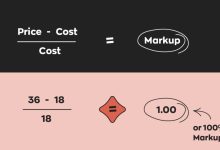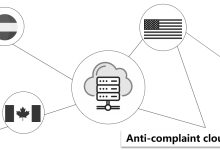In the past two months, Pop Mart’s Labubu has exploded in popularity, becoming almost a “super influencer” in the trendy toy e-commerce world. It’s everywhere — flooding social media feeds, driving short video sales, and even small street shops just a few square meters in size are displaying its avatar.
Many friends are rushing to join the craze. As a cross-border e-commerce seller with years of experience, I understand the pursuits and spirit of the new generation. I have always adhered to the value of “inclusiveness” — everything that exists has its reason.

From a cross-border e-commerce entrepreneur’s perspective, honestly, I’m not that impressed with Labubu. Some friends, even more outspoken, openly scoff at it, calling it “a pile of cheap plastic junk.”
Many replica cross-border e-commerce standalone e-commerce site sellers are starting to feel itchy, eager to jump in, as if missing this wave means missing an era.
But what Marcus Steele wants to say is: don’t just follow the hype — especially if you’re already in the replica business.
In the noisy yet hidden stream of replica cross-border e-commerce, those who truly go far are not the ones dancing to every trend, but the ones quietly building dams and storing strength beneath the surface.
1). Labubu is Traffic, Not Business
On the surface, the explosion of Labubu seems like a golden opportunity. But for replica cross-border e-commerce sellers, it’s more like a game of hot potato — whoever holds the bag last ends up paying the price.

The boom in the collectible toy industry is built on a complex system of official brands, limited releases, community culture, and scarce supply — creating a consumer illusion of value. Replica sellers from places like Putian and Guangzhou don’t have this protective moat. They can only compete in the red ocean through “1:1 replicas,” affordable alternatives, and fast turnover.
But remember: the hotter the trend, the fiercer the competition; the fiercer the competition, the slimmer the profit margin.
What’s more, platform monitoring is getting stricter. Algorithms for detection, content inspection, and intellectual property enforcement have all been upgraded. A wave of Labubu sales might be fast and fierce, but so is the risk of exposure and collapse. Once reported, penalized by platforms, or stuck with unsold inventory, months of hard work could end up being less stable than simply nurturing a batch of loyal customers in your private domain for repeat purchases.
One client put it well:
“Labubu from Pop Mart is essentially no different from the ‘Bearbrick’ craze a few years ago, limited-edition celebrity sneakers, or even stamp collections from our generation. Under the hype, it’s a game of hot potato where everyone along the chain takes a cut, and everyone can make money. Of course, buyers have to pay the highest premiums. But chances are, the value will decline over time due to oversupply and fading hype. Speculating on such items means cashing out at the peak — otherwise, it’s just a matter of bad luck who ends up holding the bag.”
In fact, many real-world examples support this view. Take masks and forehead thermometers during the pandemic — countless speculators ended up with piles of worthless “junk” gathering dust in their hands.
2) The Essence of the Replica Cross-Border E-Commerce Race Is Never About Trends — It’s About Resources and Technology
Friends, in the replica cross-border e-commerce field, it’s not about speculation but about perfecting the operational logic.
To put it simply, this business competes on two fronts:
Technical Capability: The demands here focus mainly on payment processing and operations, including payment technology, advertising technology, and more.
Resource Integration: Resources are required throughout the entire industry chain — such as various account resources, toolkits, optimized supply chains, and reliable logistics solutions.
This breaks down into stable payment technology, trustworthy suppliers and logistics providers, VPNs, virtual payment systems, advertising accounts, virtual cards, software toolkits, content creation tools, audience targeting tools, proxy IPs, influencer connections, evaluation platforms, and various websites — none can be missing.
Therefore, the business logic of this track has little to do with whether Labubu is trending or not. Even without Labubu, you can focus on other evergreen products with stable profits, lower risk, and high repurchase rates.
Don’t be misled by the illusion of short-term traffic. The ones who truly profit are those who run their operations solidly and steadily.
3) Instead of Chasing Trends, Focus on Deep Cultivation of Private Domains
Many replica cross-border e-commerce sellers keep their eyes on major advertising platforms, thinking that launching a viral product or running a live stream will take them to the next level. But with platform rules tightening, rising ad costs, and fierce competition today, customer acquisition costs on these platforms are no longer low.
However, there’s a hidden treasure close to you: your private domain e-commerce.

We invest significant effort in public domain operations mainly to build and deepen our private domain e-commerce.
A customer who has already placed an order — if you manage them well and patiently nurture the relationship — can have a repurchase rate three times higher than on platforms.
A satisfied loyal customer’s word-of-mouth conversion in communities is far more effective than blind advertising.
A special flash sale in your community or targeted holiday campaigns can be an important source of stable revenue.
Private domain e-commerce is the “moat” of replica cross-border e-commerce — it’s low-key and understated, but steady enough. Hot trends like Labubu are like shooting stars in the sky — bright for a moment, then fading into darkness.
Some sellers spend the same time chasing Labubu’s hype but would be better off using that time to refine customer tags, optimize community benefits, or distribute after-sales service packages. The long-term value gained is far more real.
Traffic drawn from the public domain and funneled into your private domain e-commerce fishpond are your true fans and customers. This way, you break free from platform fees and middlemen, engage 1-on-1 with your customers, serve directly, close deals directly, and maintain ongoing service and sales — lasting until your customers are gone.
4) The “Frenzy” Is Just an Illusion
What you see as “everyone selling Labubu” is actually a magnified local resonance. Just because 100 sellers list Labubu doesn’t mean 100 buyers are buying. More likely scenarios are:
-
Customers buy once for novelty but don’t repurchase.
-
Oversupply floods the market, causing price wars and squeezing profits down to just a few dollars.
-
Warehouses get overwhelmed, leftover stock can’t be cleared, turning into dead inventory.
-
Platforms crack down with strict controls, ads fail to run, and listings get banned.
The so-called “hot trend” is often just a “herd mentality,” where people blindly follow others’ moves.

You think everyone is making money, but many are still waiting for their stock to clear. You think you’ve caught the right trend, but actually, you’ve stepped on a ticking time bomb.
5) Make Your Business Deeper and Stronger
In the post-boom era of cross-border e-commerce, running a replica business can’t be done roughly. On the contrary, the more you operate on the margins, the more you need to efficiently iterate on execution details and boost your competitiveness.
For example, can you:
-
Shorten your product launch cycle to just 48 hours from selection to live?
-
Achieve instant customer service responses to increase user engagement and satisfaction?
-
Implement a standardized after-sales system to reduce complaints and refunds?
-
Use low-cost content marketing to maintain brand tone and differentiation?
These may sound like tedious tasks, but these “boring, repetitive” actions form the moat of your business.
So, friends, stay clear-headed and rational. Don’t blindly follow trends.
Labubu’s hype is like a tide — it rises quickly and will soon recede. What remains after the tide goes out are customer lists, user profiles, repurchase cycles, and trust — a system that can be monetized repeatedly.
True winners never show up in the heat of the moment; they calmly take orders and maintain steady shipments after the hype fades.
So to all replica cross-border e-commerce standalone store operators, put away your anxiety about “chasing trends.” Stop getting obsessed over Labubu posters.
What you should really focus on are your own customers, your private domain e-commerce, and your operational efficiency.
The tide will eventually retreat. Only those who build steadily and understand the essence won’t be caught naked when the water goes out.
If you can settle down and deepen your business — making it stable, detailed, and resilient — you don’t need to chase every hot trend to survive the cycles.
After all, in the replica cross-border e-commerce world, hype has never been the answer — profit is.
 Custom E-commerce Solutions for High-Quality Designer-Inspired Fashion Replicas | Website Development, Dropshipping, Payment Integration for PayPal and Stripe, Ad Cloaking Services
Custom E-commerce Solutions for High-Quality Designer-Inspired Fashion Replicas | Website Development, Dropshipping, Payment Integration for PayPal and Stripe, Ad Cloaking Services




























![5 Best WordPress Themes for Replica Product International Trade Websites [Recommended]-Custom E-commerce Solutions for High-Quality Designer-Inspired Fashion Replicas | Website Development, Dropshipping, Payment Integration for PayPal and Stripe, Ad Cloaking Services](https://replicasmaster.com/wp-content/uploads/2025/06/1-1-220x150.jpg)